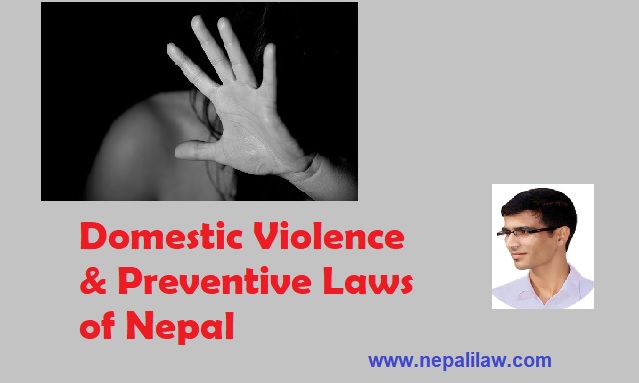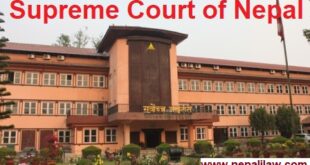Devendra Puodel Introduction: – Domestic violence is one of the major forms of violence against women. Violence by a family member is also called domestic violence. In Nepali society, there is a traditional view that domestic violence is a matter of personal or domestic matter. – Physical, mental, sexual and …
Read More »Less punishment for infanticide’s in ‘compulsive Condition’
The Supreme Court set principle that the killing of a child born (infanticide) in such a conditions when the woman concerned has unprotected/unsafe sex should not be punished as in other murder cases. A joint bench of Supreme Court combined of Justices Ishwar Prasad Khatiwada and Hari Prasad Phuyal commuted …
Read More »A child can choose only mother or father as family name
The Supreme Court orders to give citizenship in only mother’s name. A joint bench of Justices Deepak Kumar Karki and Hari Prasad Phuyal issued an order in the name of the District Administration Office, Kathmandu. The Supreme Court’s verdict states that the child has the right to choose the family …
Read More »Judicial Notice and Nepali Law
Judicial notice is used by a court during declares a fact presented as evidence as true without the appearance of evidence. A court may take judicial notice of questionable facts. Certain facts are should be now always within the knowledge of the court. Too many such facts need not be …
Read More »What is Precedent or Case Law in Common law
Precedent is also known as case law or judge-made law. Judicial precedent is a process that is followed by the judges to take the judgment. The decision is taken by following similar cases that happened in the past in the common law system. Hence, the judicial decision is based on …
Read More »Judicial System of Nepal
The Judicial System of Nepal has believes in an independent, impartial, and competent judiciary and the concept of the rule of law, and establish a prosperous country. An independent judiciary, imaginative by the executive division of the government of Nepal. Judicial System of Nepal developed by its own judicial system, …
Read More »Curriculum of 3 Year LL.B. Programme of Tribhuwan University of Nepal
The curriculum of LL.B. Programme LL. B. First Year Course Code No. Course Title Nature of Course Full Marks Period /Year Law 321 Jurisprudence Compulsory 125 Law 322 Procedural Law Compulsory 125 Law 323 Constitutional Law Compulsory 125 Law 324 Comparative Law and Nepalese Legal System Compulsory 125 Law 325 …
Read More »Legal provision (law) related Untouchability and Discrimination of Nepal
Introduction Untouchability is a worldwide socio-cultural problem mostly on basis of race. In Nepal, Dalits form the groups which have received the most inhuman treatment and maltreatment from the so-called ‘high castes’ through caste-based discrimination, including untouchability. In practice, untouchability means avoidance of physical contact with persons of lower castes …
Read More » Nepali Law A complete legal information portal
Nepali Law A complete legal information portal

